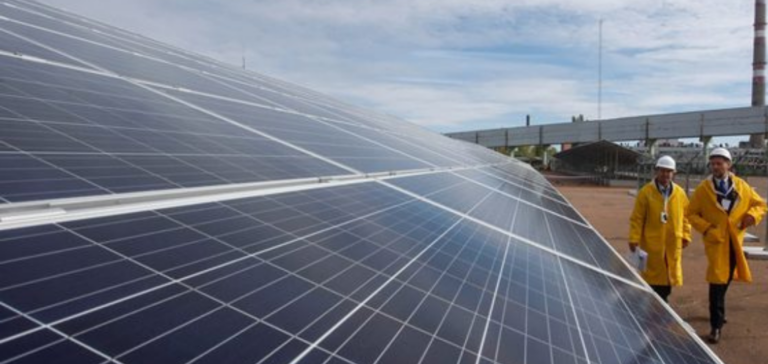The Estonian solar park has recently started producing electricity, surprisingly quickly. Located on the industrial site of the Estonian mine, it has a capacity of almost 3MW and is based on a gangue structure, an innovative solution for maximizing the efficiency of electricity production while reducing losses due to shading.
Efficiency and collaboration
According to Elise Johanna Lill, Renewable Energy Project Manager at Enefit Green, production started last Saturday, just six months after the start of construction, which is an excellent result given the location and complexity of the project. Signal tests for the solar park are now underway, followed by grid connection tests.
Around 40 people worked on the site every day, and all the parties involved worked together to meet the deadlines. An agreement was reached with the contracting partners for the early delivery of the necessary materials, and despite the complexity of the foundation installation due to the peculiarities of the gangue, the construction company kept ahead of schedule. This unique solution makes it a highly efficient solar park.
Solar Energy Optimization
The Estonian solar park rests on a 27-metre-high structure built from gangue generated during oil shale extraction. This design reduces losses due to shading, improving the efficiency of electricity production. The investment in the solar park amounts to almost 2.7 million euros, a decision taken at the end of last year, with construction starting in April this year.
Local Energy Supply
The electricity generated by the solar power plant will supply the Enefit Power mine in Estonia, which is expected to consume most of it for its own needs. This is the second solar park built by the company on an industrial site, following the completion of the Laaskõrve solar park in May 2019 in Ida-Viru county. Enefit Green is currently building five wind farms and three solar farms in Estonia, Lithuania, Poland and Finland, with a total capacity of 608 megawatts, for a total investment of over 780 million euros.
All in all, the Estonian solar park surprised everyone with its rapid commissioning, demonstrating the efficiency of its gangue structure. This project will contribute to the supply of electricity to Enefit Power’s mine in Estonia, and reinforces Enefit Green’s commitment to the development of renewable energies in Northern Europe.






















